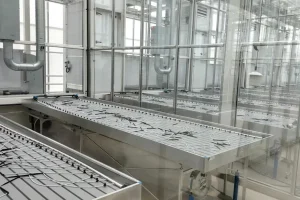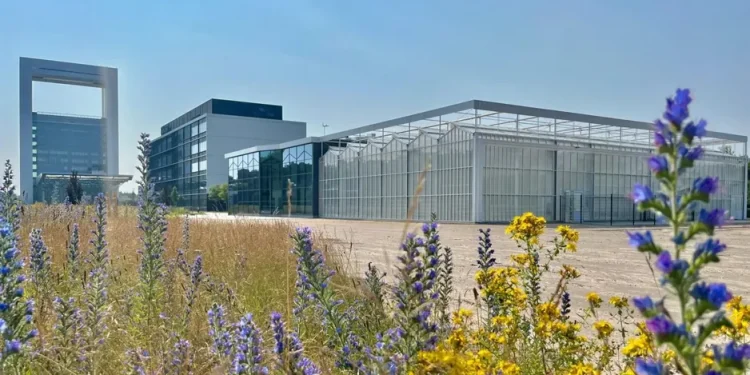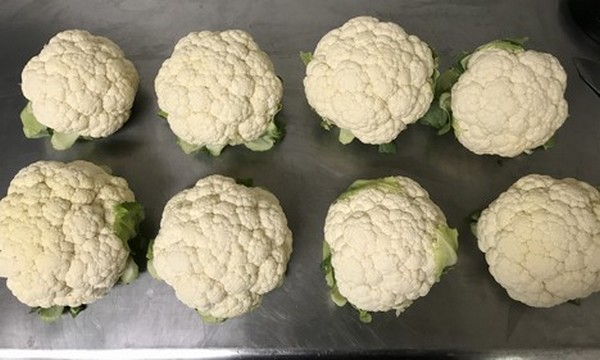Maastricht University has unveiled a state-of-the-art research greenhouse at the Brightlands Campus Greenport Venlo, setting the stage for groundbreaking work in the future of agriculture and horticulture. Officially opening on September 1, 2023, this new facility will be the epicenter of research focused on new cultivation techniques, plant development, and the optimization of nutrient-rich crops.
A New Era of Agricultural Research at Maastricht University
The Brightlands Future Farming Institute, part of Maastricht University, will use this high-tech greenhouse to address some of the most pressing challenges in global food security and agricultural sustainability. The institute’s goal is to contribute to solving the technological and societal issues facing the agrifood sector through cutting-edge research and innovation.
According to Prof. Dr. Wim Vriezen, a leading researcher in Plant Functional Genomics, the new greenhouse is strategically located in North Limburg, a historically significant region for food production and crop improvement. “North Limburg’s legacy in agriculture makes it the ideal location for pioneering innovations that can meet the demands of future food systems,” says Vriezen. “Our new greenhouse will play a crucial role in developing technologies and methods to ensure a healthy, safe, and sustainable food supply for the world in 2050.”
Advanced Technologies for Research and Development
The 1,600 m² research greenhouse is designed with several advanced features that support a wide range of agricultural experiments and technological developments.
Customized Climate Control
One of the standout features of the greenhouse is its advanced climate control system. The facility includes high-quality greenhouse sections and climate chambers where researchers can manipulate temperature, humidity, and light conditions to suit various crops. Peter Keunen, Technical Manager at the Brightlands Future Farming Institute, explains, “Unlike traditional greenhouses, our design incorporates multiple small, fully sealed compartments that allow for precise control over environmental conditions. This setup enables us to create tailored climates for different types of crops, from upright tomatoes to leafy greens.”
Sustainable and Gas-Free Operations
The greenhouse operates on a completely gas-free system, utilizing heat pumps to supply low-grade heat. This sustainable approach minimizes the carbon footprint of the research operations. The design also features double glazing and an expanded heating surface to maintain optimal temperatures, while exterior screens protect the greenhouse from excessive heat during the summer months.
State-of-the-Art Facilities for Genetic Research
In addition to climate-controlled growing areas, the greenhouse includes six specialized rooms for research involving genetic modification (GM) of plants. These rooms are fully insulated and maintained under negative pressure to prevent the escape of GM organisms and ensure a sterile environment. This setup supports research on plant genes, helping scientists understand their functions and explore natural genetic variations for crop improvement.
Collaborative Research and Future Projects
The new greenhouse will foster collaboration between Maastricht University and the Radboud Institute for Biological and Environmental Sciences in Nijmegen. Together, these institutions will embark on several doctoral research projects focusing on leguminous crops such as peas and beans. These crops are being studied for their potential as sustainable alternatives to imported soy used in animal feed. The research aims to enhance crop yields, improve protein content, and explore innovative methods for protein extraction.
Implications for Investors and Agribusiness Professionals
For investors and entrepreneurs in the agricultural sector, the establishment of this high-tech greenhouse presents several opportunities:
- Investment in Sustainable Agriculture: The greenhouse’s advanced technologies and sustainable practices offer a model for future agricultural investments. The facility’s design and operations provide insights into effective climate management, energy efficiency, and environmentally friendly practices that can be scaled and applied to larger agricultural ventures.
- Research and Development Opportunities: The focus on cutting-edge research into new cultivation techniques and plant genomics presents opportunities for partnerships and investments in agricultural R&D. Investors interested in supporting innovative projects in crop improvement, nutrient optimization, and sustainable farming technologies will find this facility a valuable resource.
- Educational and Collaborative Ventures: The collaboration between Maastricht University and Radboud Institute creates avenues for joint ventures, research partnerships, and educational programs. Agribusiness professionals and investors can explore opportunities for involvement in high-impact research projects and contribute to advancements in agricultural science.
Looking Ahead: The Future of Agricultural Innovation
The new greenhouse at Brightlands Campus Greenport Venlo is poised to become a leading hub for agricultural research and innovation. With a strong emphasis on sustainable practices and advanced technologies, the facility is set to drive significant progress in the fields of crop cultivation and plant genomics.
As the research team embarks on their projects, the greenhouse will serve as a critical platform for exploring new approaches to food production and addressing global challenges in agriculture. The results from this high-tech research environment will likely have far-reaching implications for both local and international agricultural practices.











